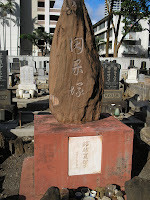There had been strikes by white workers in two of the mines in March over pay and conditions, resulting in pay rises which inflamed already tense relations with African mineworkers, who earned in a month about the same as the whites received in a day and got none of their benefits. The public beating of the wife of a black miner after an argument about rations sparked further discontent, culminating in ugly riots in which police opened fire, killing thirteen Africans and injuring many more. Copper was vital to the war effort and Northern Rhodesia was the Empire's main producer, so the mines had to be kept operating seven days a week, and Gore-Browne had been called in urgently by the Governor to mediate. Summoning up all his courage, with faithful Henry by his side as bodyguard and interpreter, he had braved thousands of angry black miners brandishing spears and broken bottles, all backed by the menacing thump of tribal drums, to enter the compound of the ringleaders on the third day of rioting. Many were Bemba, and seeing 'Chipembele' they had agreed to speak, but it had taken all his persuasive powers to get them to down arms and return to work, having wrangled them a few concessions and got the Governor's blessing to promise an official British government inquiry into conditions. I thank the Lord for my gift of getting on with people, he wrote to [his aunt] Ethel.SOURCE: The Africa House: The True Story of an English Gentleman and His African Dream (HarperCollins, 2004), by Christina Lamb, pp. 221-223
Now the Commission was under way, and, along with Sir John Forster who had come out from England to head it, and Thomas Sandford, the Secretary for Native Interests, he had been meeting managers and workers, trying to get them to work together, and going underground to see conditions in the mines. Visiting native compounds, known as the 'locations', he was shocked by the squalid shacks, describing them in his diary as so different to the neat bungalows with the square green lawns of the white workers. European employees had their own club with swimming-pool, tennis courts and golf course, and during the rainy season their residential area was full of purple bougainvillaea, red flame trees, hibiscus and white frangipani.
Gore-Browne hated the Copperbelt, finding it a queer uneasy place, perhaps because of its mixed population dominated by South Africans. Ndola, which he remembered from before the copper boom as a one street place consisting of six corrugated iron huts, was a pleasant enough town with its neat white bungalows and avenues of mahogany trees, trunks painted white to prevent them being eaten by the white ants which devoured everything in the area, though it was hardly the 'new Johannesburg' everyone had predicted when the extent of the copper mines had first been realized. The road to Nkana, following an old Arab slave trail, was lined with beautiful thick teak forest. Mine shafts and derricks dominated the skyline, and there was something about the place that created mutual mistrust and suspicion between all the people—black and white, workers and officials, management and government. Gore-Browne was convinced that the situation would never be properly resolved until African workers were put on an equal footing with their white colleagues, a heretical suggestion for the times, and told Ethel, the whole experience has left me feeling rather Bolshevik—the pettiness and narrow-mindedness of the managers (who deal in millions of pounds) is quite unbelievable. The General Manager of Roan and Mufulira mines for example refused to allow the Trade Unions a phone merely out of spite.
This is as opportune a time as any to inflict upon my dear readers the following old chestnut I first encountered in a footnote in African Language Structures, by William E. Welmers, which I read during an introduction to African linguistics course one summer at the University of Illinois at Urbana-Champaign. Chibemba, like Kiswahili and most Bantu languages, marks noun classes with prefixes that also mark singular and plural for that class. Thus, bantu is 'people', muntu is 'person' (for some speakers, this only refers to black people, like kanaka in the Pacific). Similarly, in Setswana, 'people' are batswana and 'a person' is motswana. The same principle applies to loanwords, so the singular of batenda 'bartender' is mutenda, while the plurals of kitabu 'book' and kipilefti 'roundabout, traffic circle' are vitabu and vipilefti, respectively.
